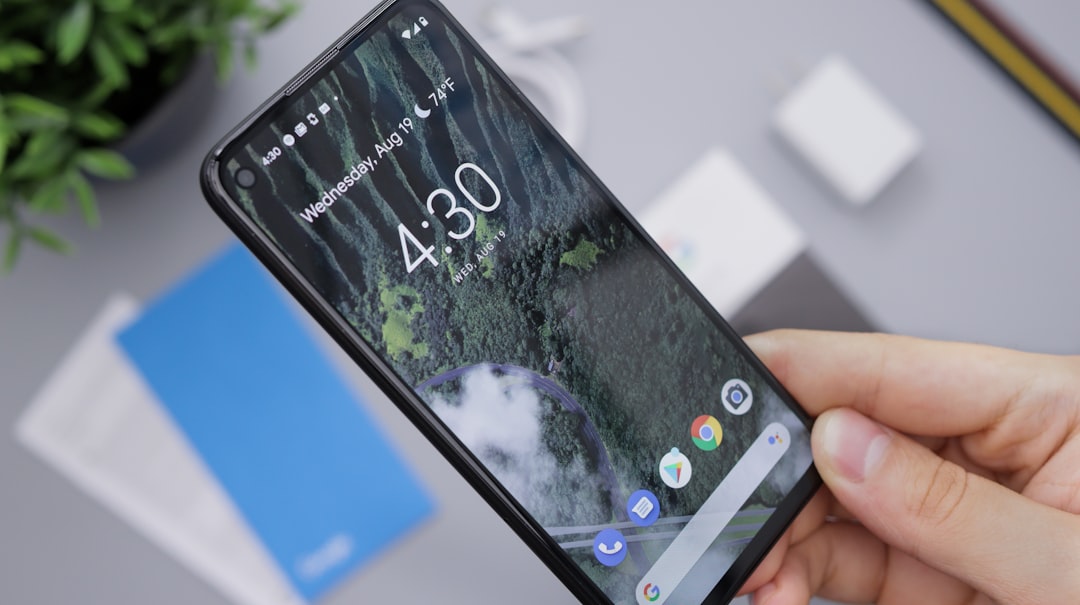In Connecticut, unauthorized telemarketing calls (robocalls) are a significant legal issue. These intrusive and misleading automated messages violate state regulations like the FDCPA and TCPA. Victims can protect their privacy and finances by seeking help from qualified attorneys at reputable robocall law firms in CT. Connecticut has strong consumer protection laws against automated or prerecorded calls without consent. Combining the best app to stop robocalls with legal expertise is effective, offering guidance on damages, legal systems, and rights protection. Documenting call logs and screenshots using the best app is crucial for building a case with robocall lawyers or law firms in CT specializing in consumer protection laws.
Unwanted telemarketing calls, or robocalls, are a common nuisance, but in Connecticut, they’re not just an annoyance—they’re illegal. The state has stringent laws against unauthorized robocalls, offering residents robust legal protections. If you’ve been plagued by these calls, understanding your rights and seeking damages is crucial. This guide explores Connecticut’s approach to robocalls, the role of technology like the best app to stop robocalls in CT, and the steps to engage a lawyer for robocall issues, ensuring you’re equipped with the knowledge to navigate this complex landscape effectively.
- Understanding Unauthorized Telemarketing Calls in Connecticut
- Legal Framework: Connecticut's Position Against Robocalls
- The Role of the Best App to Stop Robocalls in CT
- Engaging a Lawyer for Robocall Issues: What to Expect
- Building a Case: Documenting and Proving Robocall Infractions
- Effective Strategies for Damages and Legal Recourse
Understanding Unauthorized Telemarketing Calls in Connecticut
In Connecticut, unauthorized telemarketing calls, often referred to as “robocalls,” are a common nuisance with serious legal implications. These automated or pre-recorded messages, usually delivered via phone, email, or text, can be intrusive and misleading, especially when they violate state regulations. The Connecticut Fair Debt Collection Practices Act (FDCPA) and the Telephone Consumer Protection Act (TCPA) offer protections against such calls, particularly when they are used for debt collection or marketing purposes without prior consent.
If you’ve been a victim of these unauthorized calls, it’s not only annoying but also potentially harmful to your privacy and financial security. The best app to stop robocalls, along with a lawyer from a reputable robocall law firm CT, can help navigate the legal landscape. A qualified attorney, such as those specializing in robocall lawyers CT or robocall attorneys CT, can guide you through the process of seeking damages for these unwanted intrusions. Using their expertise and knowledge of the law, they ensure that your rights are protected and that you receive the compensation you’re entitled to under Connecticut’s laws.
Legal Framework: Connecticut's Position Against Robocalls
Connecticut has established a robust legal framework to combat unauthorized telemarketing calls, particularly those known as robocalls. The state’s position against this intrusive practice is evident in its strict regulations and penalties for violators. Consumer protection laws in Connecticut explicitly prohibit automated or prerecorded calls from being placed to residents’ phone lines without their prior explicit consent.
If you’ve been a victim of unwanted and frequent robocalls, there are legal avenues available. The best app to stop robocalls, coupled with the expertise of a lawyer CT residents trust, can be a powerful combination. Robocall law firms CT and attorneys dedicated to this area can guide you through the process of seeking damages. They’ll help you navigate the legal system and ensure your rights are protected, providing peace of mind in the face of persistent robocalls.
The Role of the Best App to Stop Robocalls in CT
In Connecticut, dealing with unauthorized telemarketing calls, or robocalls, has become a common nuisance. The best app to stop robocalls can be a powerful tool for residents seeking relief. These apps are designed to identify and block automated phone calls, offering a practical solution to an increasingly pervasive problem. With features like call screening, blocking, and filtering, they provide an immediate line of defense against unwanted robocalls.
When combined with the expertise of a dedicated robocall law firm or lawyer for robocall in CT, these apps can be even more effective. Legal professionals specializing in this area can guide victims through the complex landscape of consumer protection laws and help them seek damages for unauthorized calls. The best app to stop robocalls attorney CT and robocall lawyers CT often work together to ensure that residents not only protect themselves from future intrusions but also hold perpetrators accountable, providing a comprehensive approach to tackling this modern-day issue.
Engaging a Lawyer for Robocall Issues: What to Expect
When dealing with a flood of unauthorized telemarketing calls, many Connecticut residents turn to technology with apps claiming to be the best solution to stop robocalls. However, for more complex cases where legal action is required, engaging a specialized lawyer becomes essential. The best app to stop robocalls can’t always handle the intricate laws and regulations surrounding these issues, making professional legal counsel irreplaceable.
In Connecticut, a robocall law firm or attorney with expertise in this field will first assess your case and understand the nature of the unwanted calls. They’ll then guide you through the process, which may involve filing a complaint with the Federal Trade Commission (FTC) or taking legal action against the offending companies. A lawyer for robocalls CT can help you seek damages, block future calls, and ensure compliance with Connecticut’s strict anti-telemarketing laws. Expect open communication, a thorough understanding of your rights, and a strategic approach to resolve the issue effectively.
Building a Case: Documenting and Proving Robocall Infractions
Building a strong case against unauthorized telemarketing calls involves meticulous documentation and proof of infractions. The first step is to gather evidence, such as recorded call logs, screenshots of incoming calls, or any communications that confirm the identity of the caller and their intent to market products or services without your consent. Many consumers find the best app to stop robocalls helpful in capturing and saving these details. Engaging a lawyer for robocall or joining a robocall law firm CT with expertise in consumer protection laws can significantly aid in this process.
These legal professionals can assist in interpreting the Connecticut laws, which make it unlawful for telemarketers to call residents without prior express consent. They will guide you through the process of collecting and presenting evidence, ensuring that your case is robust and compliant with legal requirements. Robocall lawyers CT and robocall attorneys CT from reputable firms can help determine if a pattern of unwanted calls exists, which is crucial for pursuing damages and holding perpetrators accountable.
Effective Strategies for Damages and Legal Recourse
Seeking damages for unauthorized telemarketing calls can be a complex process, but with the right strategies and legal expertise, Connecticut residents have several options to combat this growing issue. The first step is to document the calls, including dates, times, and any details about the caller or company. This evidence is crucial when filing a complaint with the Federal Trade Commission (FTC) or pursuing legal action. Many people find that downloading a reliable best app to stop robocalls can significantly reduce the number of unwanted calls they receive.
Hiring a robocall lawyer CT or connecting with a robocall law firm CT specializing in telemarketing regulations is another effective strategy. These professionals understand the laws, such as the Telephone Consumer Protection Act (TCPA), and can help determine if a company has violated your rights. A lawyer for robocall CT can guide you through the process of seeking damages, which may include blocking future calls, obtaining compensation for emotional distress, or even punitive damages in severe cases. Don’t hesitate to explore these legal options to protect yourself from intrusive and unauthorized telemarketing activities.






